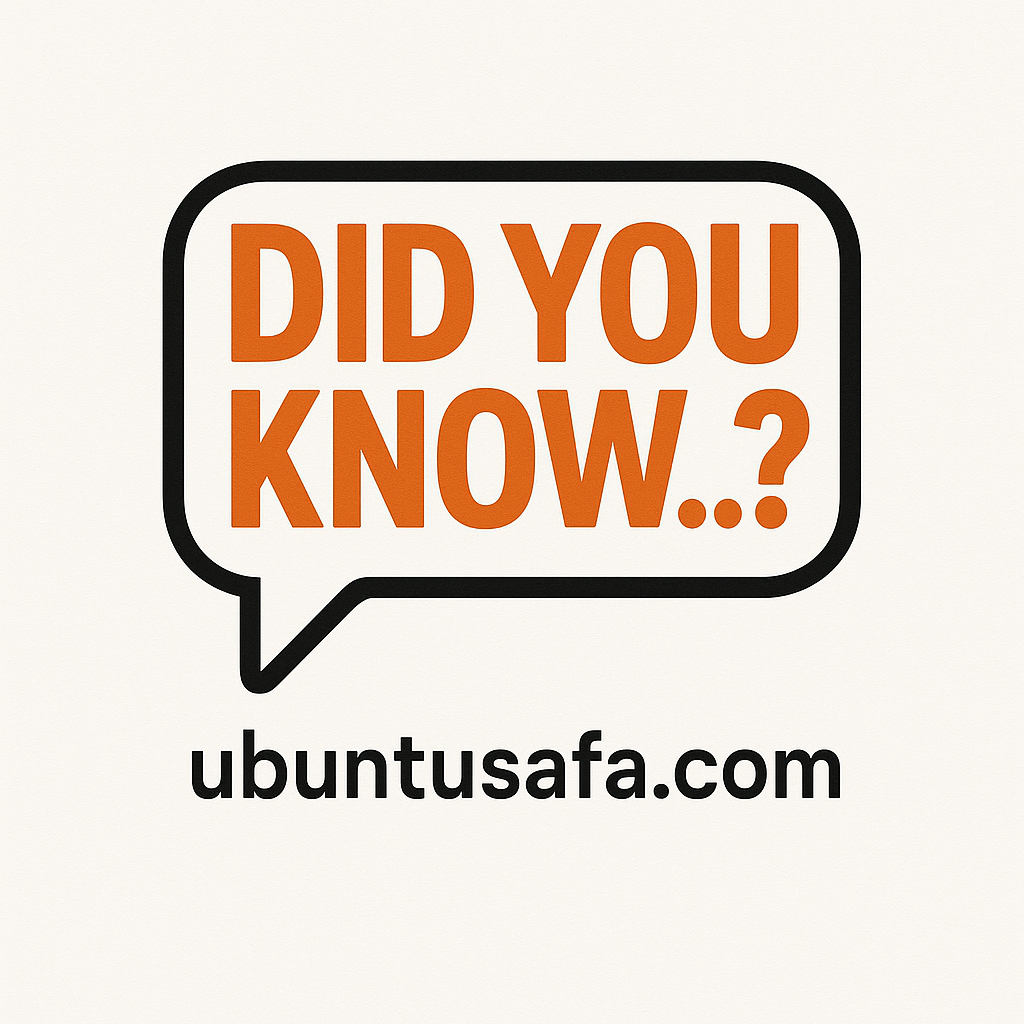Did You Know Africa Trades More with Outside Countries Than Within Itself?

Africa trades more with outside countries than within itself?
Despite being a vast continent with 54 countries and over 1.4 billion people, Africa’s internal trade is surprisingly limited compared to its trade with the rest of the world.
-
Over 80% of Africa’s trade is with countries outside the continent, mainly Europe, China, and the US.
-
Intra-African trade accounts for only about 15%–18% of total trade, much lower than other regions like Asia or Europe.
-
This imbalance is due to challenges like poor infrastructure, high tariffs between African countries, and fragmented markets.
-
The African Continental Free Trade Area (AfCFTA), launched in 2021, aims to change this by boosting trade within Africa and creating a single large market.
-
Increasing intra-African trade could spur industrialization, job creation, and economic resilience.
🧠 Quote for Thought
“Africa’s true economic power lies in its unity — when we trade with each other, we grow stronger together.”
— Voices for Progress
++++++++++++++++++++++++++++++++++++++++++++++++++++
African Continental Free Trade Area (AfCFTA): Unlocking Africa’s Economic Potential
What is AfCFTA?
The African Continental Free Trade Area (AfCFTA) is a landmark trade agreement aiming to create a single continental market for goods and services across Africa’s 54 countries. Launched on January 1, 2021, AfCFTA is the world’s largest free trade area by number of participating countries, covering a market of over 1.4 billion people and a combined GDP of approximately $3.4 trillion (2023 estimate).
Key Objectives
-
Boost intra-African trade: Increase trade within Africa from the current 15-18% share to significantly higher levels, reducing dependence on external markets.
-
Promote industrialization and economic diversification: Facilitate value addition, manufacturing, and cross-border investments.
-
Enhance economic integration: Harmonize trade policies, reduce tariffs and non-tariff barriers, and improve customs procedures.
-
Create jobs and reduce poverty: By expanding markets and boosting economic activities.
-
Strengthen Africa’s voice in global trade negotiations.
Key Data & Milestones
| Indicator | Data/Value |
|---|---|
| Member States | 54 African countries (all signed) |
| Market Size | 1.4 billion people |
| Combined GDP | Approx. $3.4 trillion (2023) |
| Current Intra-African Trade | ~15-18% of total African trade |
| Tariffs Reduced | Initial commitments to cut tariffs on 90% of goods over time |
| Start Date | January 1, 2021 |
| Target Trade Increase | Estimated 52% increase in intra-African trade by 2027 (World Bank) |
| Estimated GDP Boost | Up to $450 billion increase in Africa’s GDP by 2035 (UNECA) |
Why AfCFTA Matters-
-
Market Access
AfCFTA creates the largest free trade area in the world by population, offering businesses access to a continental market without customs duties on most goods. -
Reducing Barriers
The agreement aims to reduce tariffs, simplify customs procedures, and tackle non-tariff barriers like inconsistent regulations and border delays. -
Diversifying Economies
Africa’s economies are often dependent on exporting raw materials. AfCFTA encourages processing, manufacturing, and regional value chains that add value locally. -
Empowering SMEs and Women
Small and medium-sized enterprises (SMEs), especially those led by women and youth, gain better access to larger markets, fostering inclusive growth. -
Regional Integration
It complements existing Regional Economic Communities (RECs) such as ECOWAS, SADC, and EAC, moving toward deeper continental integration.
Challenges to Overcome-
-
Infrastructure deficits (roads, rail, ports) hinder smooth trade.
-
Diverse regulatory environments and political differences slow harmonization.
-
Non-tariff barriers like customs corruption and bureaucratic delays remain.
-
Need for capacity building to help businesses, especially SMEs, take advantage of the market.
Impact So Far-
-
Over 40 African countries have ratified the agreement and begun implementing trade protocols.
-
Several tariff reductions and trade facilitation measures are underway.
-
New regional supply chains and trade corridors are developing.
-
African businesses and entrepreneurs are increasingly exploring cross-border opportunities.
Quote for Thought
“AfCFTA is not just a trade agreement — it is a blueprint for Africa’s economic future, unity, and prosperity.”
— African Union
- Questions and Answers
- Opinion
- Motivational and Inspiring Story
- Technology
- True & Inspiring Quotes
- Live and Let live
- Focus
- Art
- Causes
- Crafts
- Dance
- Drinks
- Film/Movie
- Fitness
- Food
- Jeux
- Gardening
- Health
- Domicile
- Literature
- Music
- Networking
- Autre
- Party
- Religion
- Shopping
- Sports
- Theater
- Wellness
- News
- Culture

